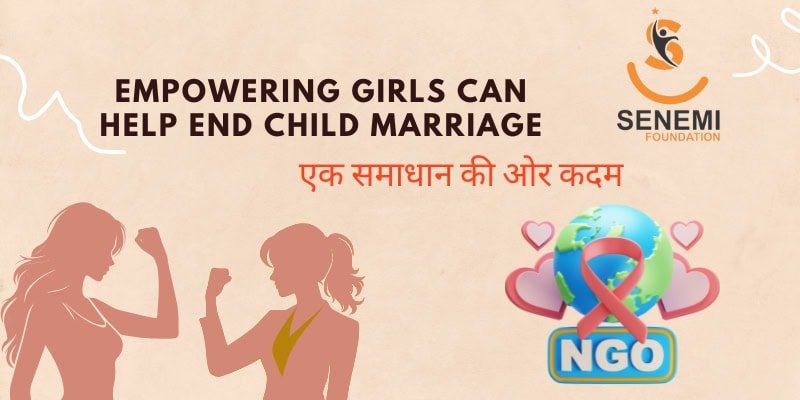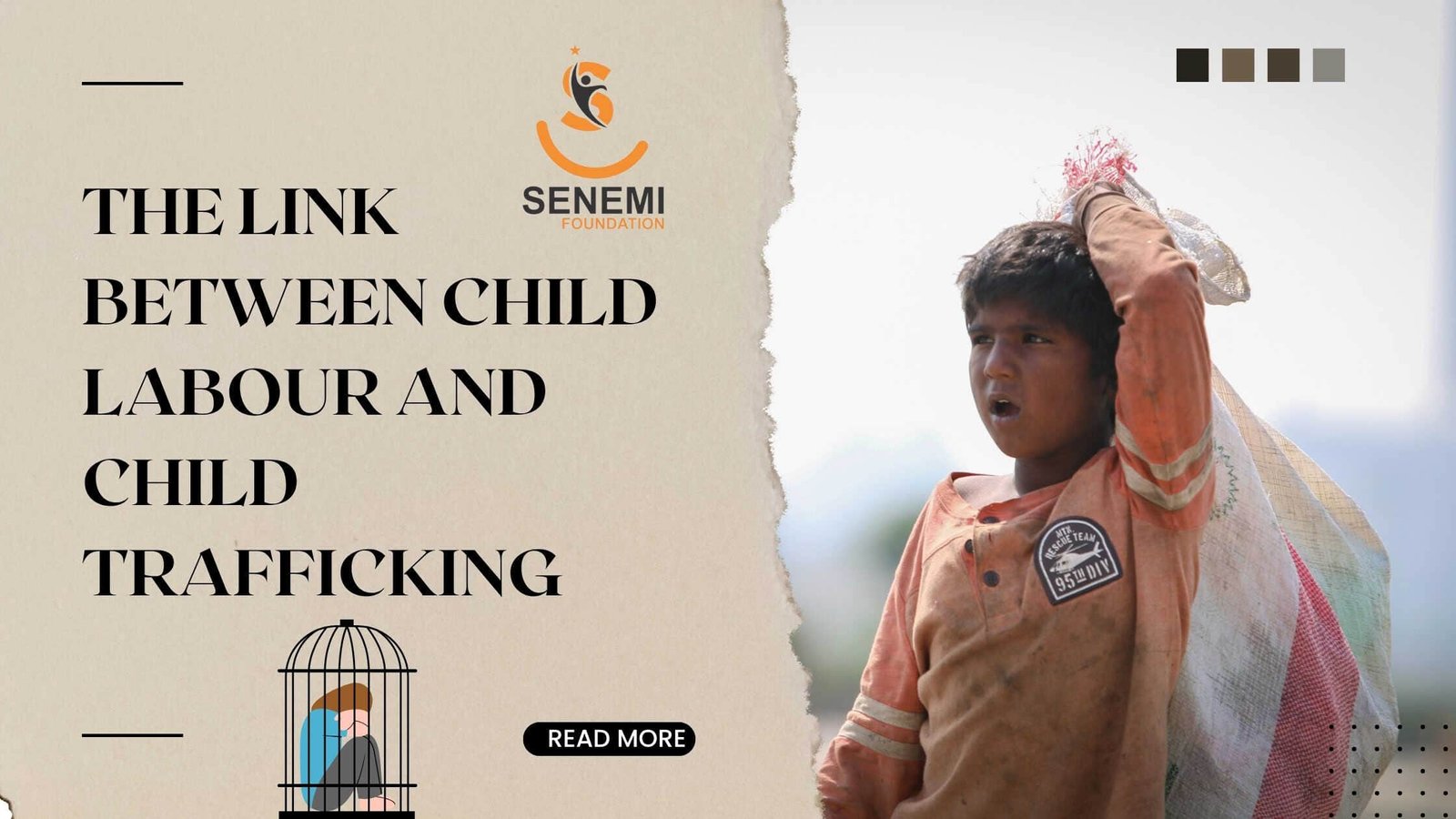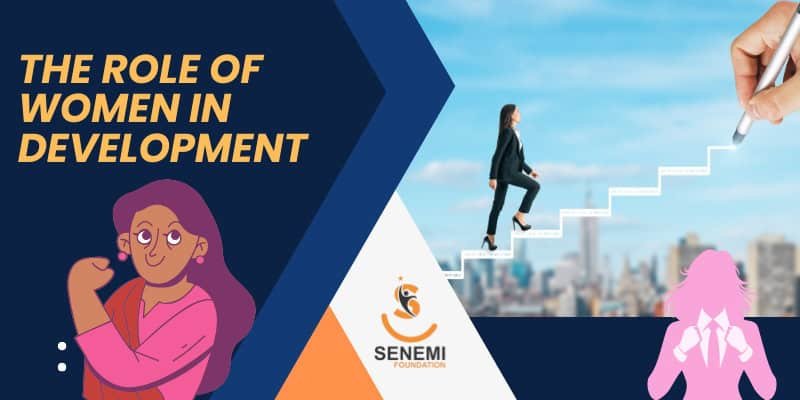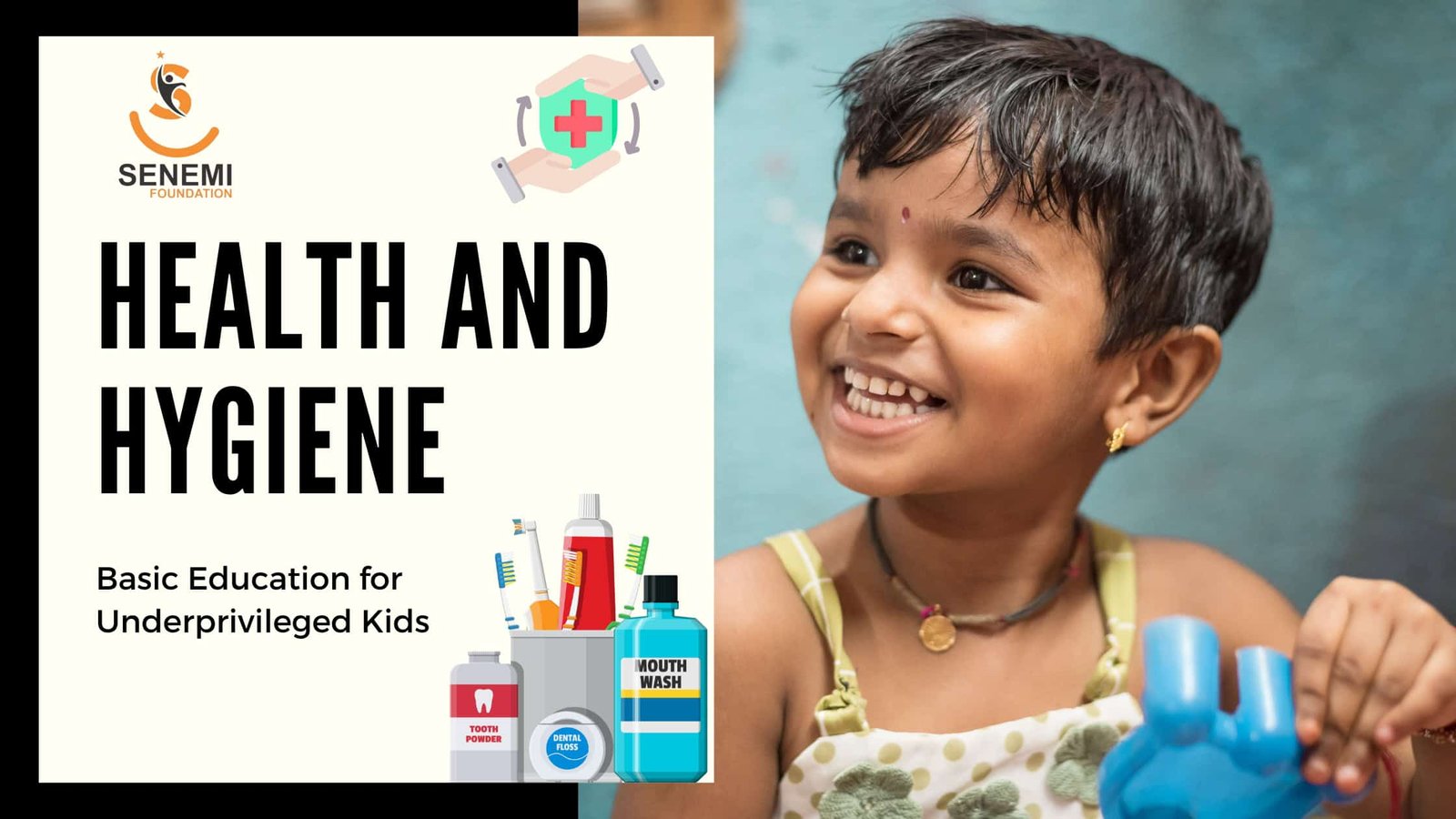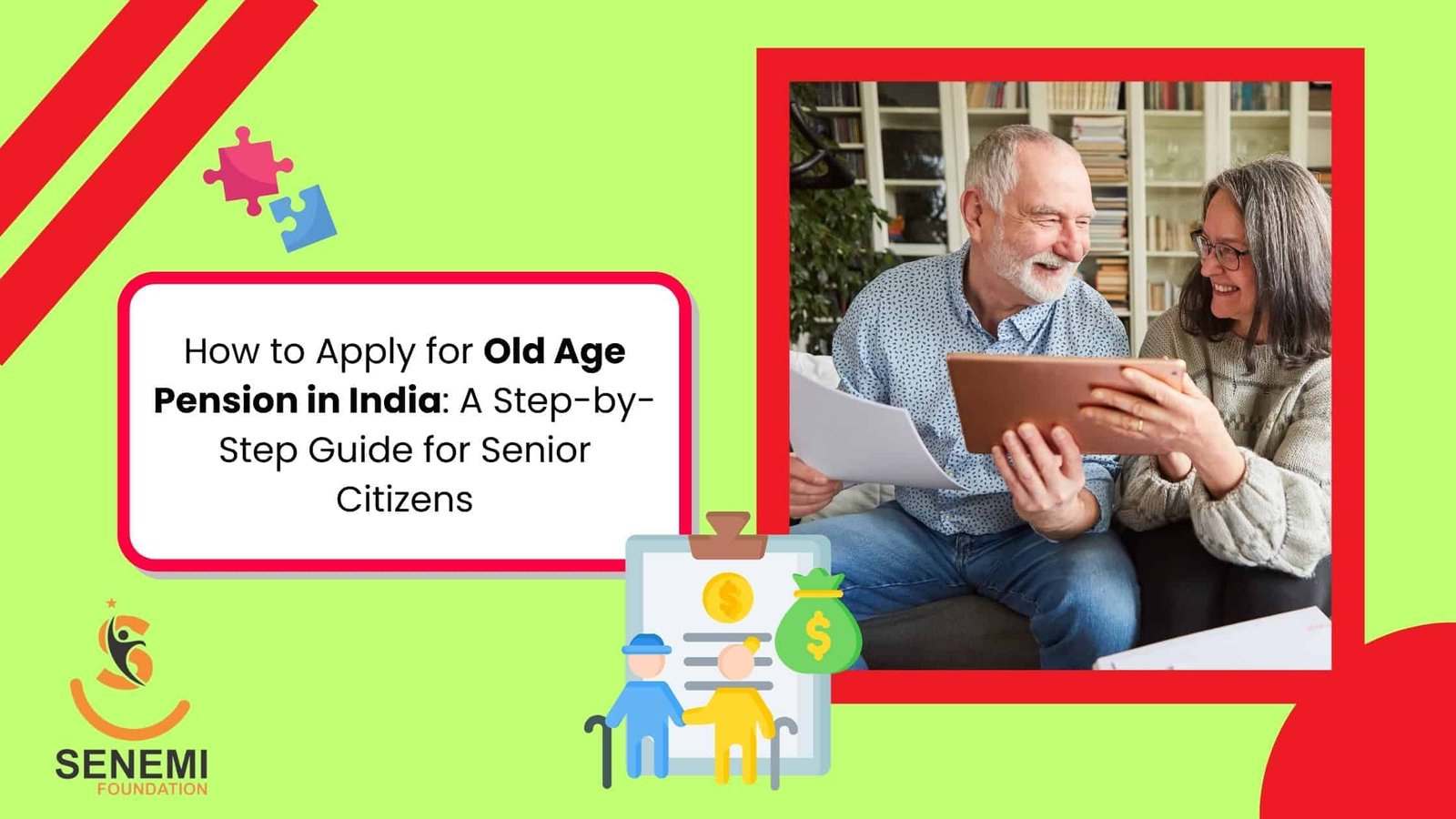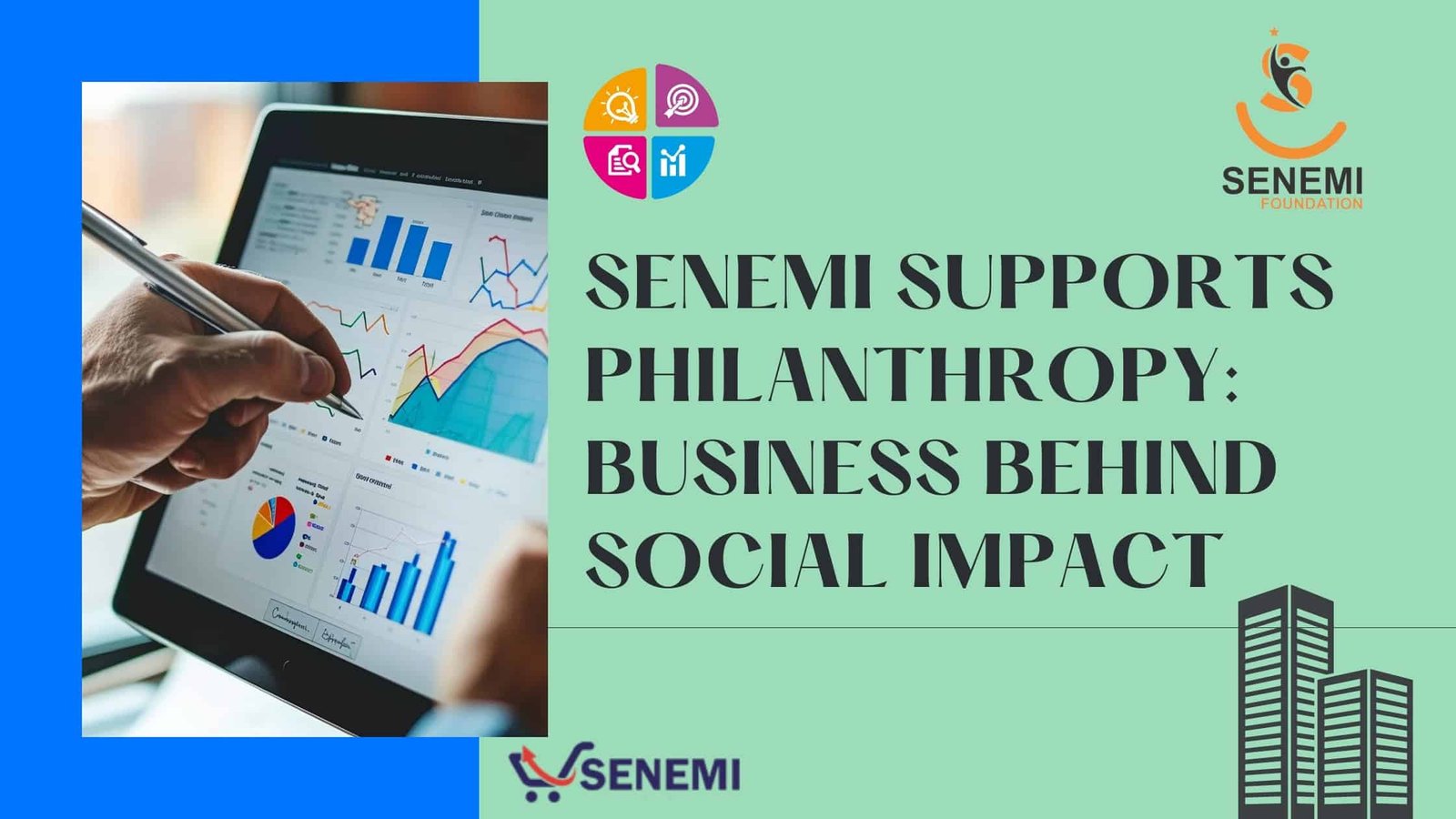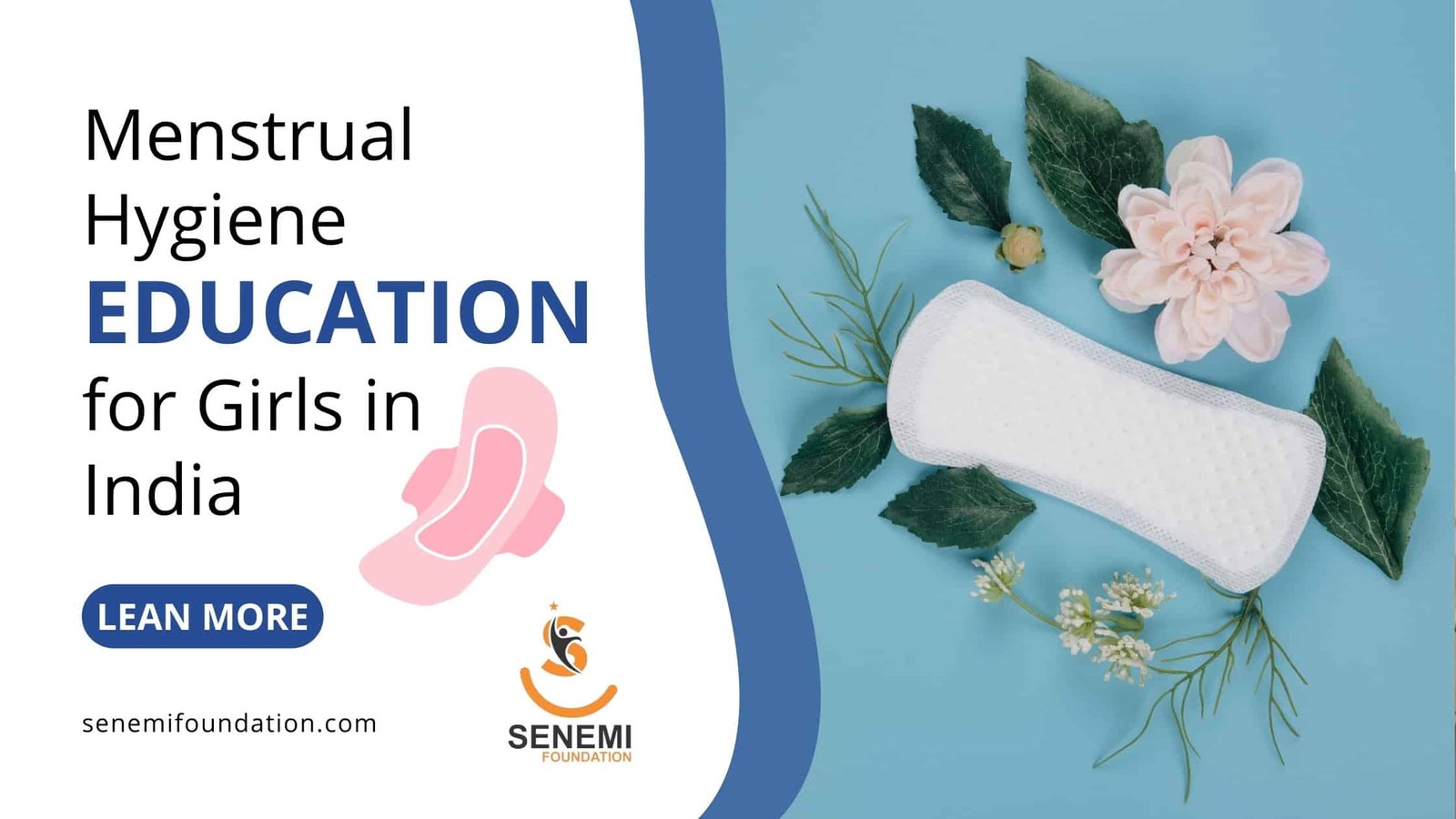

Introduction
In India, menstrual hygiene remains one of the most neglected aspects of adolescent health, especially for girls from underprivileged and rural backgrounds. Despite being a natural biological process, menstruation is often wrapped in stigma, misinformation, and silence—leading to serious consequences for young girls' health, education, and dignity. A lack of menstrual hygiene awareness, coupled with inadequate facilities and limited access to sanitary products, causes many girls to miss school or drop out altogether, severely impacting poor girl education. According to reports, millions of school-aged girls in India face barriers to safe menstrual practices simply due to inadequate support systems and cultural taboos. The Senemi Foundation is committed to changing this narrative by championing menstrual hygiene education across rural and urban areas. This blog explores why menstrual hygiene matters, the challenges that exist, and the transformative role education and awareness can play in creating a healthier, more equitable future for India’s girls.
Understanding Menstrual Hygiene: Breaking the Silence
What Is Menstrual Hygiene and Why It Matters
Menstrual hygiene refers to the practices and conditions that allow women and girls to manage their menstruation safely and with dignity. According to the menstrual hygiene definition, it encompasses access to clean menstrual products, safe and private spaces for changing, and adequate knowledge about the menstrual cycle. Despite its importance, millions of girls across India remain unaware of what is menstrual hygiene, leading to physical discomfort, psychological distress, and severe health consequences.
For girls in rural India, especially those belonging to low-income families, the silence surrounding menstruation can be isolating. Many do not receive menstrual hygiene health education before they begin menstruating, leaving them vulnerable to unsafe practices. For these young girls, menstrual hygiene introduction is often delayed or misinformed, perpetuating myths and reinforcing taboos. Menstrual hygiene awareness in Uttar Pradesh, Uttarakhand, and other underserved states is crucial to bridging this gap.
The Link Between Menstrual Hygiene and Girl Child Education
Lack of menstrual hygiene is not just a health issue—it directly affects education. Every year, thousands of girls in India miss school during their periods due to inadequate sanitation facilities and absence of support. In many cases, this leads to school dropout due to menstruation, a crisis that silently fuels gender inequality in education. The stigma and lack of understanding around periods create a hostile environment for girls, leading to absenteeism, shame, and even poor girl education outcomes.
Research has shown that menstrual health education in India can dramatically reduce dropouts and empower girls to stay in school. When schools provide clean toilets, sanitary napkins, and menstrual hygiene education, it leads to increased confidence and participation. Programs like those run by the Senemi Foundation aim to address this deeply rooted issue by launching targeted menstrual hygiene awareness campaigns in government schools and villages.
Challenges in Maintaining Menstrual Hygiene in Rural India
Period Poverty and Inadequate Access to Sanitary Products
One of the gravest challenges faced by girls in India is period poverty—a lack of access to affordable sanitary products. In remote villages and economically weaker areas, many girls still rely on cloth, ash, husk, or even paper during menstruation, which severely compromises their health. The absence of subsidized or freely distributed sanitary napkins highlights a systemic neglect of menstrual hygiene. Sanitary napkin distribution remains inconsistent, and in many parts of rural Uttar Pradesh and Uttarakhand, girls go months without access to even a single sanitary pad.
This lack of menstrual supplies also means that girls are forced to stay home during their cycles, adding to poor girl education outcomes and feeding a cycle of ignorance and shame. NGO menstrual health programs in India, like those by Senemi Foundation, have been working tirelessly to counter this by organizing menstrual hygiene workshops in villages and initiating sanitary pad awareness campaigns.
Cultural Taboos and Stigma Around Menstruation
Deep-rooted cultural beliefs continue to stigmatize menstruation, labeling it as unclean or impure. Girls are often prohibited from entering kitchens, attending school, or even sleeping on their own beds during their menstrual cycle. These archaic customs are passed on through generations, reinforcing silence and shame. The stigma around menstruation has made it difficult for parents, teachers, or even peers to talk openly about it, leaving girls to navigate their periods with fear and confusion.
This culture of silence makes the importance of menstrual hygiene even more urgent. Awareness about periods in rural India can only be achieved through consistent, empathetic dialogue and education that includes not just girls, but also boys, parents, and community leaders.
Lack of Menstrual Hygiene Infrastructure in Schools
Despite various government schemes, the availability of gender-sensitive sanitation infrastructure in schools remains poor. Many rural schools lack functional toilets, water, disposal bins, or private spaces for girls to manage their periods. Without such basic infrastructure, even girls who want to continue their education are forced to stay home. This is a major driver behind the impact of menstruation on girl child education and why menstrual hygiene practices for school girls need institutional support.
Senemi Foundation has taken an active role in improving these conditions by collaborating with schools and local governing bodies to install toilets, provide hygiene kits for girls, and deliver reproductive health education to both students and teachers.
Senemi Foundation’s Menstrual Hygiene Education Initiatives
Empowering Girls Through Education and Awareness
At the heart of Senemi Foundation’s mission lies a firm belief: no girl should miss school or feel ashamed simply because of her period. Recognizing the critical need for change, the foundation has launched several initiatives across India to raise menstrual hygiene awareness, particularly targeting girls’ health education in rural India. From the slums of Delhi to the villages of Uttar Pradesh and Uttarakhand, the foundation’s team is working relentlessly to ensure that every girl understands how to maintain menstrual hygiene and feels empowered by her knowledge.
Using local languages and culturally sensitive materials, Senemi Foundation organizes interactive sessions on menstrual hygiene education that debunk myths and explain the causes of menstrual hygiene issues. These sessions form a vital part of period education programs in India, ensuring that girls not only receive practical guidance but also emotional support and encouragement.
Menstrual Hygiene Day: Driving National Conversation
Every year on Menstrual Hygiene Day, Senemi Foundation hosts widespread campaigns in collaboration with schools, community leaders, and volunteers. These events include menstrual hygiene day activities like drawing competitions, awareness rallies, storytelling, and educational talks. These public gatherings serve as platforms to break the silence around menstruation and spread the importance of menstrual hygiene.
By associating Menstrual Hygiene Day with community pride rather than shame, the foundation encourages girls and their families to see menstruation as a symbol of strength, not weakness. This movement is essential to tackle the health risks of poor menstrual hygiene and highlight the real-world benefits of menstrual education for girls.
Distribution of Sanitary Kits and Infrastructure Development
Alongside education, Senemi Foundation ensures the availability of basic facilities and materials. The team regularly conducts sanitary napkin distribution drives in government schools and underserved areas, providing girls with quality menstrual products free of cost. These kits often include pads, soap, undergarments, and informational booklets, forming a holistic menstrual hygiene management (MHM) package.
In areas where infrastructure is weak, Senemi Foundation partners with schools to build clean toilets, incinerators for safe disposal, and hand-washing stations—components that are non-negotiable for practicing proper menstrual hygiene. These efforts, especially in period education initiatives in Delhi NCR and menstrual hygiene projects in Uttarakhand, reflect the foundation’s commitment to sustainable impact.
Inclusive Workshops and Community Mobilization
One of the unique aspects of Senemi Foundation’s strategy is its inclusive approach. Their awareness campaigns for school girls in India are designed to engage not just students, but also their mothers, fathers, teachers, and brothers. This whole-community model helps to challenge prejudices, foster empathy, and strengthen support systems around menstruating girls.
The foundation’s menstrual hygiene workshop in villages combines science-based knowledge with real-life stories, enabling young girls to see that they are not alone. Through storytelling, games, visual aids, and role-play, the workshops provide a safe space for girls to ask questions and voice their concerns—something most have never had the chance to do.
The Impact of Menstrual Hygiene Education on India’s Future
Transforming Lives Through Knowledge and Confidence
When girls are educated about menstrual hygiene, the transformation goes far beyond physical health. Knowledge fosters confidence, self-respect, and empowerment. Girls who once felt shame about their periods now stand proud, prepared, and supported. The Senemi Foundation’s ongoing campaigns have demonstrated how access to accurate menstrual hygiene education can help eliminate the silence surrounding periods in rural and urban India alike.
With the spread of menstrual health awareness, more girls are returning to school even during their periods, prepared with sanitary products and the confidence to manage their menstrual cycle. They no longer fear mockery, pain, or confusion. Instead, they experience a sense of community and shared experience, bolstered by the knowledge of how to maintain menstrual hygiene safely.
The benefits of menstrual education for girls ripple outward—leading to lower school dropout rates, better academic performance, improved self-esteem, and stronger community health overall.
Uplifting Poor Girl Education Through Health Rights
For many girls living in poverty, menstruation is more than a health event—it’s a recurring barrier to progress. In areas with poor girl education rates, periods become yet another reason to stop attending school. But with targeted menstrual hygiene health education, this trend can be reversed.
Education brings choices. It allows a girl to dream beyond the walls of her home, to pursue goals that were once unimaginable. When Senemi Foundation introduces puberty education in schools, girls are taught not only about menstruation but also about their right to health, privacy, and equal opportunity.
By embedding reproductive health education into school curriculums and after-school programs, especially in menstrual education in government schools India, the foundation is working to ensure that no girl is left behind because of a lack of knowledge or access.
Reducing Stigma and Creating Generational Change
Perhaps one of the most profound impacts of menstrual hygiene education is its ability to dissolve decades of stigma. As girls begin to understand that menstruation is natural and not a curse, they become advocates in their own homes and communities. The Senemi Foundation’s students often return from workshops ready to teach their mothers, cousins, and friends—extending the reach of each campaign far beyond the classroom.
By engaging men and boys in the conversation as well, the foundation helps reframe menstrual hygiene as a public health issue, not a private shame. This inclusive approach ensures that the next generation of fathers, brothers, teachers, and employers will be allies in the fight against period stigma.
The long-term result? Healthier communities, stronger schools, and a nation that treats its girls with the respect and dignity they deserve.
How You Can Support Menstrual Hygiene Awareness with Senemi Foundation
Be a Voice for Change
Every small action matters in the journey toward better menstrual hygiene for girls in India. Whether you're a student, a teacher, a parent, or a policymaker, your involvement can help end the cycle of shame and silence. The Senemi Foundation invites individuals and institutions to join hands in promoting menstrual hygiene education—not just as a health initiative but as a movement for equality and empowerment.
You can support by spreading awareness, organizing talks, sponsoring hygiene kits for girls, or contributing to our community workshops. As more people learn why menstrual hygiene is important for girls, the social stigma will gradually fade, making way for informed, confident, and healthy individuals. Your support helps take this message to the most remote corners where awareness about periods in rural India is still minimal.
Collaborate, Volunteer, and Advocate
Senemi Foundation regularly collaborates with schools, local panchayats, and health departments to carry out menstrual hygiene projects in Uttarakhand, Delhi NCR, and Uttar Pradesh. Volunteers play a crucial role—helping conduct sessions, distribute supplies, and document stories that inspire others. We believe everyone has a role to play in achieving menstrual hygiene awareness across India.
By partnering with child rights NGOs in India, schools, and grassroots organizations, you can help expand our reach. Together, we can create a network of safe spaces where girls can speak freely about their bodies, manage their periods with dignity, and focus on their dreams.
Support on Menstrual Hygiene Day and Beyond
Each year, World Menstrual Hygiene Day reminds us of our duty to build an inclusive and period-positive world. The Senemi Foundation celebrates Menstrual Hygiene Day not just as a date but as a platform to push year-round advocacy. Our menstrual hygiene day activities spark vital conversations, highlight success stories, and demand accountability from systems that fail our girls.
But true change happens when we carry this momentum into every month, every school, and every home. That’s why we ask you not to wait until May 28th to act. The movement for menstrual hygiene is ongoing, and your consistent support helps us sustain our mission.
Conclusion
In a country where menstrual hygiene is still surrounded by whispers and restrictions, education stands as the most powerful tool for change. With the right information, support, and access, girls across India can reclaim their confidence and health, no longer forced to sacrifice their education or self-worth to an outdated taboo.
The Senemi Foundation believes that no girl should feel unworthy, unclean, or afraid because of her period. Through grassroots programs, school partnerships, and national advocacy, we are building a future where menstruation is no longer a roadblock but a milestone of growth and strength.
The importance of menstrual hygiene is not just about health—it’s about dignity, equality, and opportunity. Together, let’s commit to a world where every girl, no matter where she lives, has the tools and knowledge to manage her periods safely and with pride.
 Abhay
Abhay